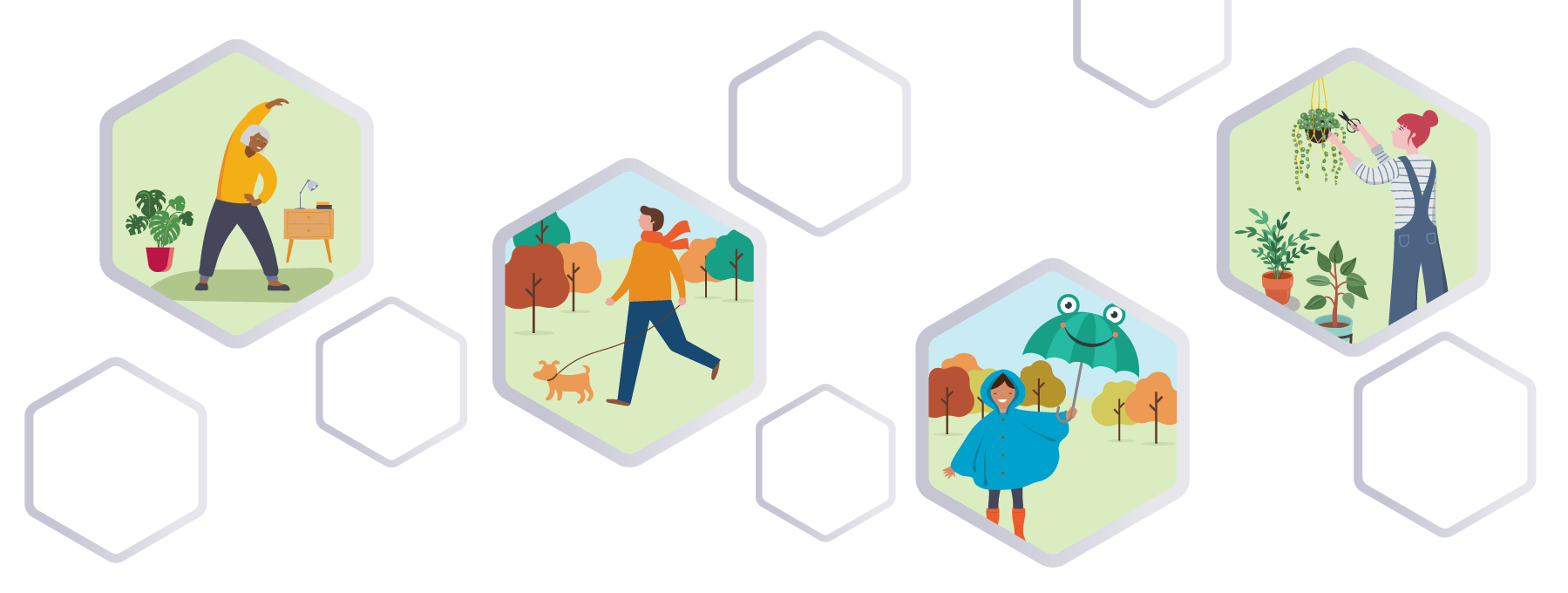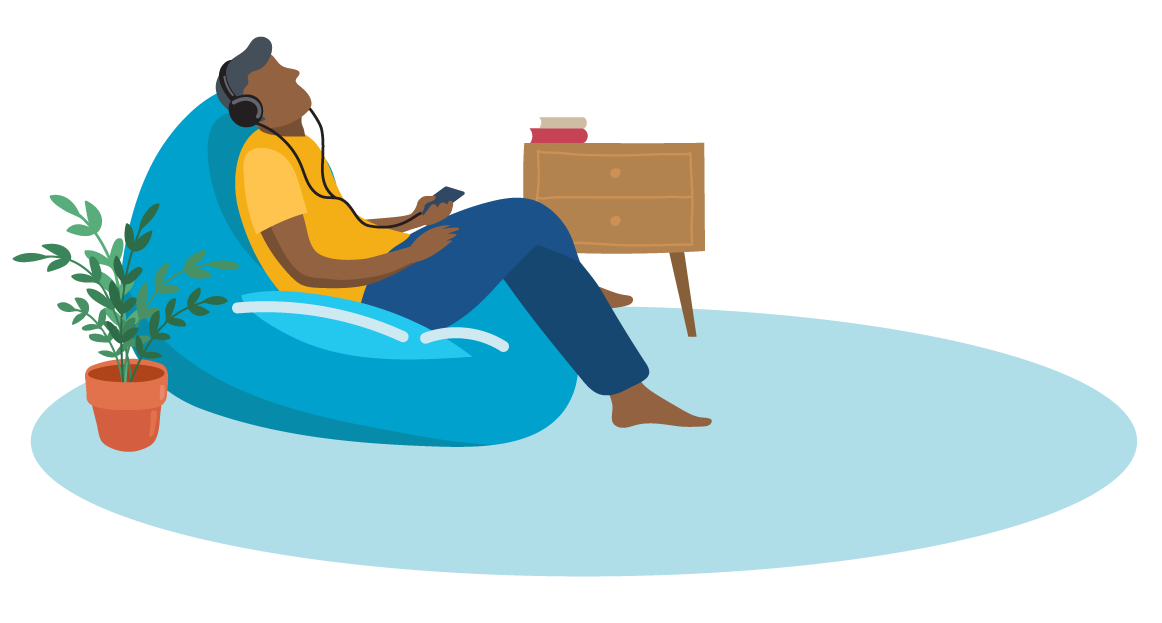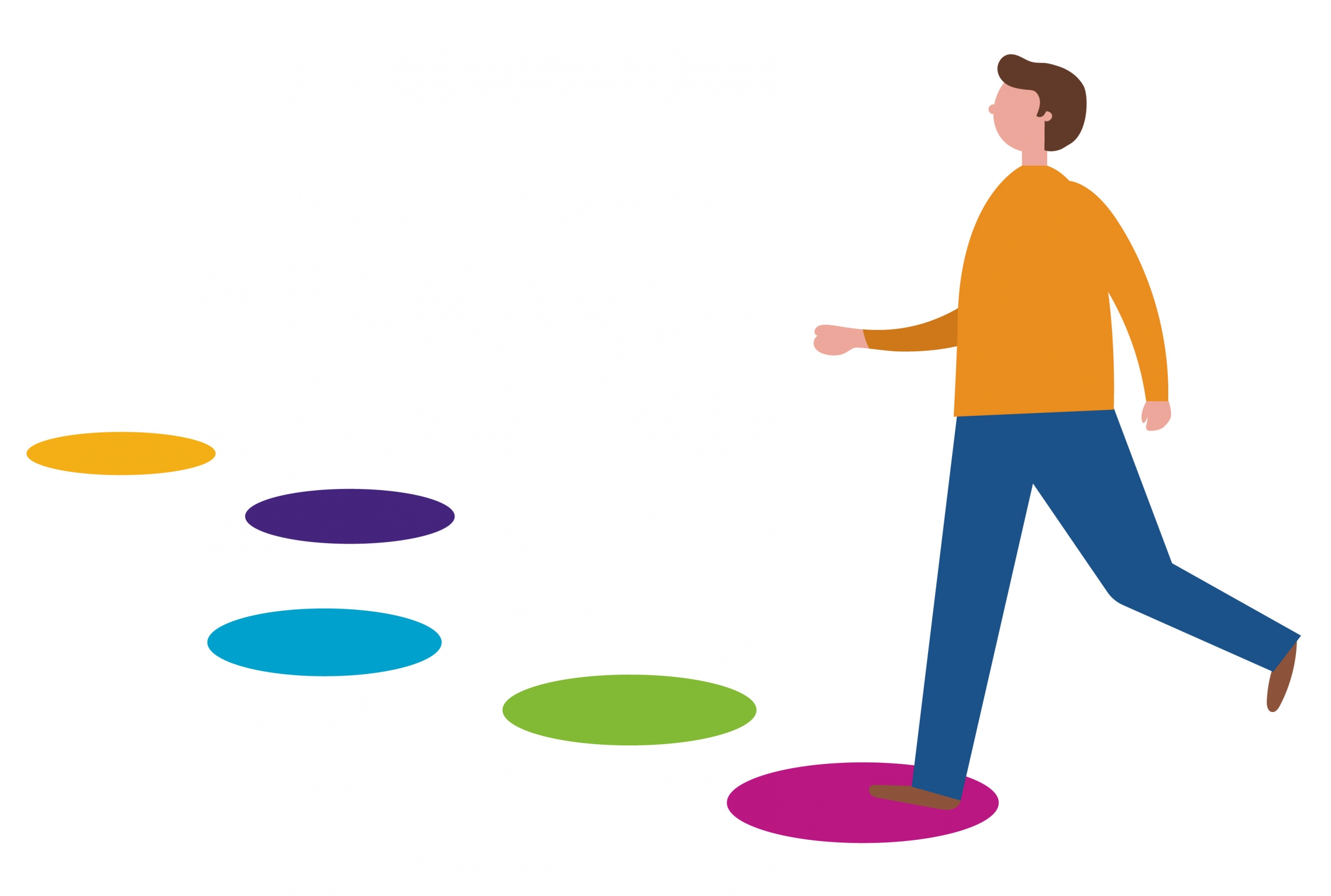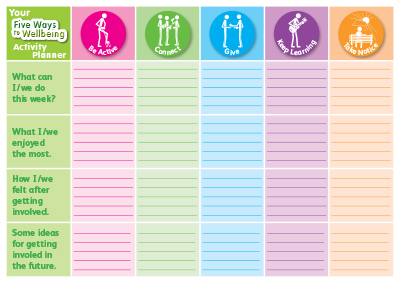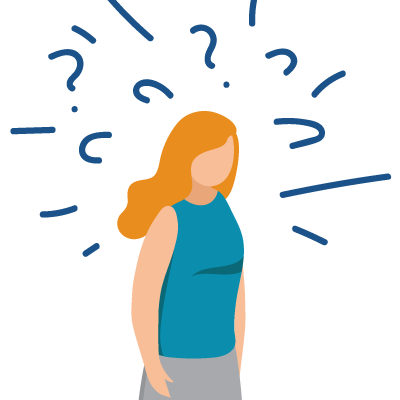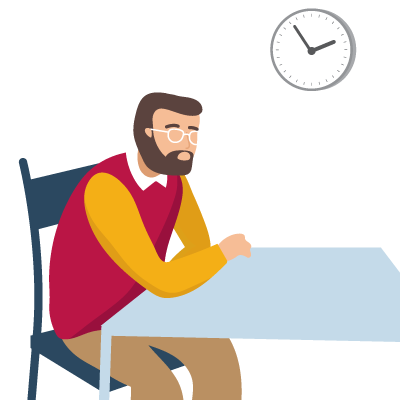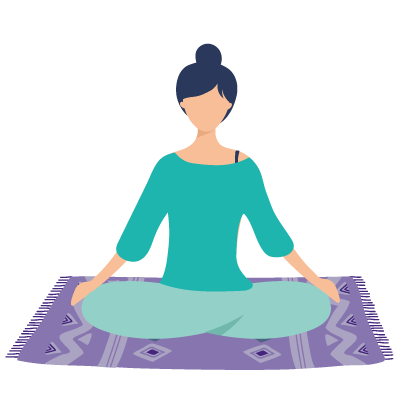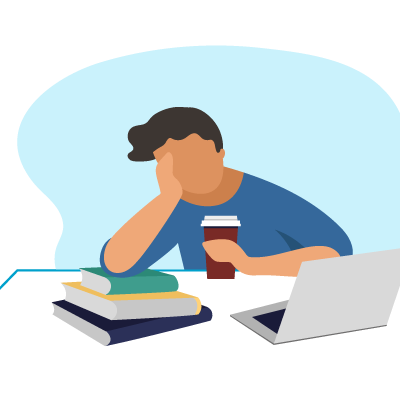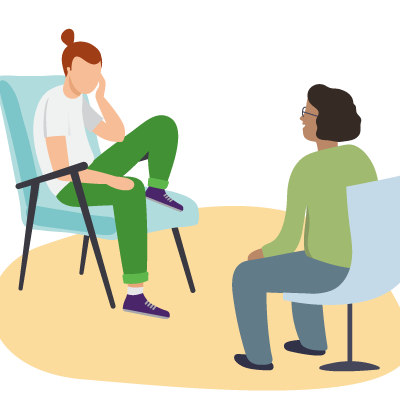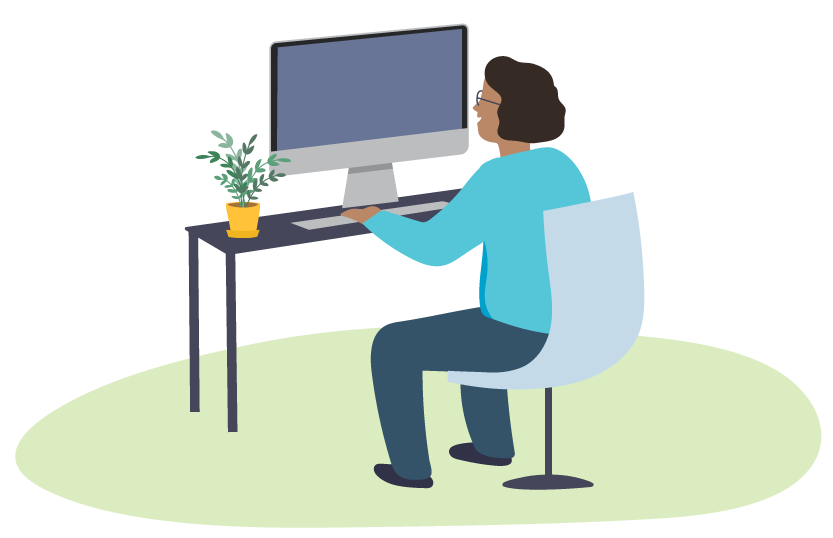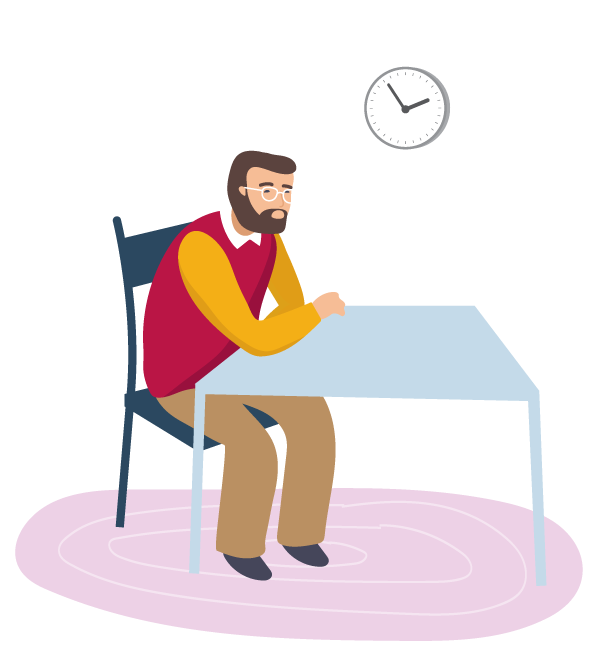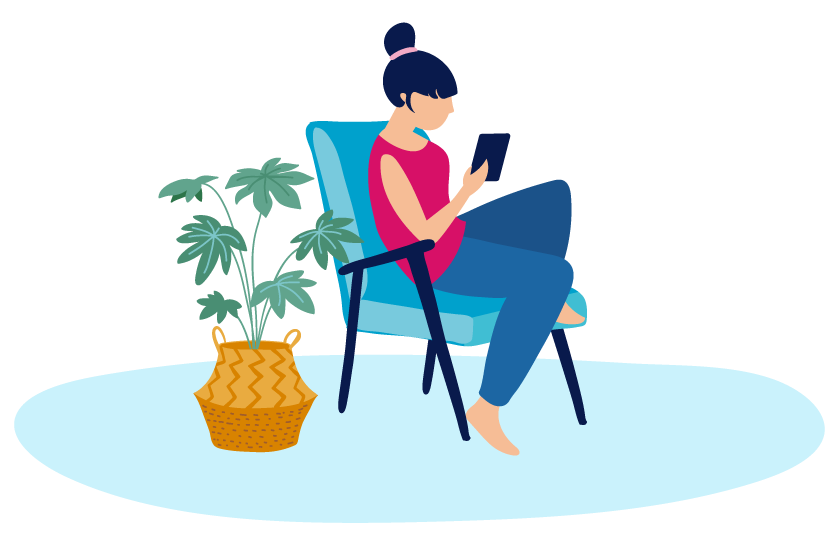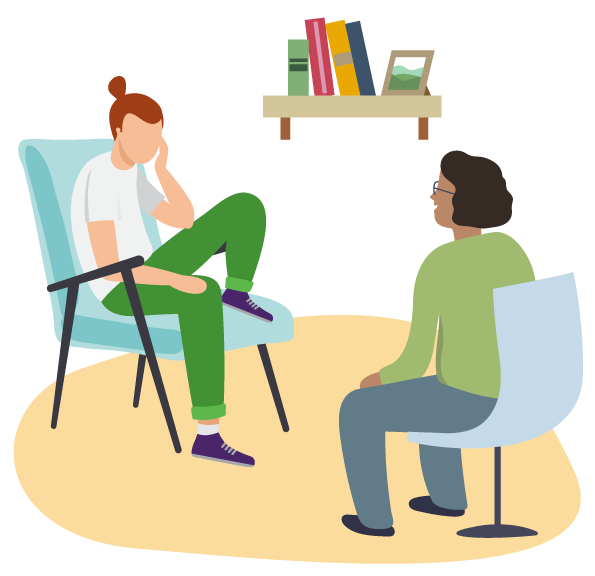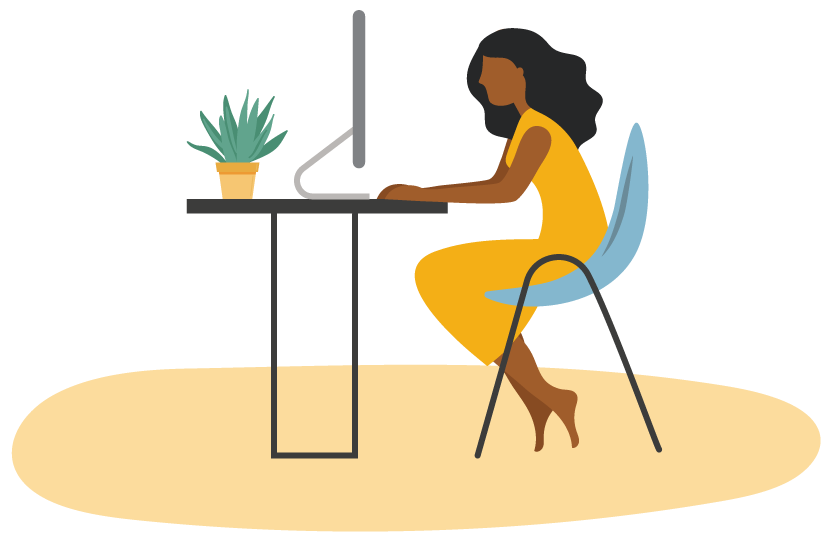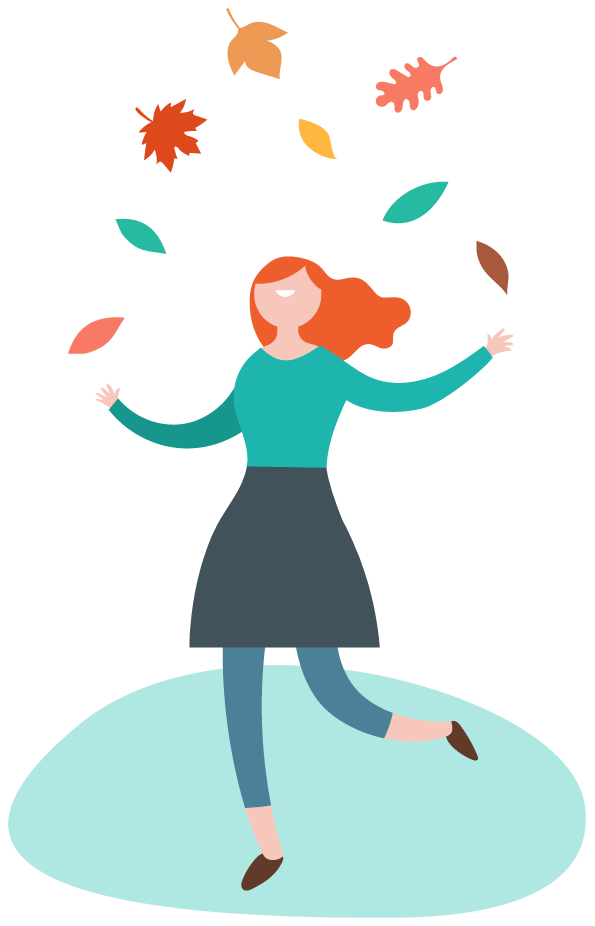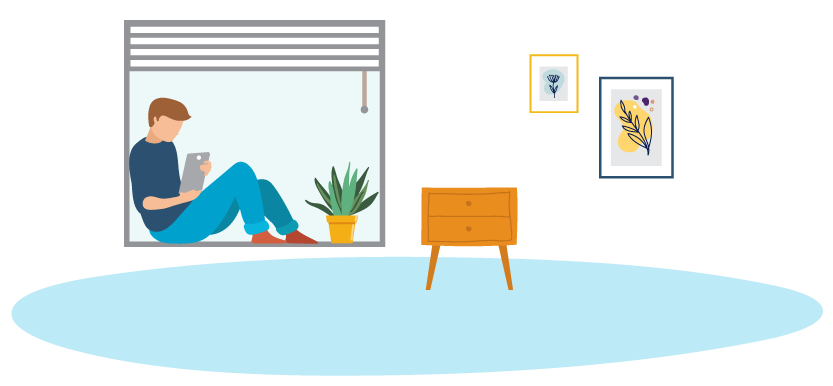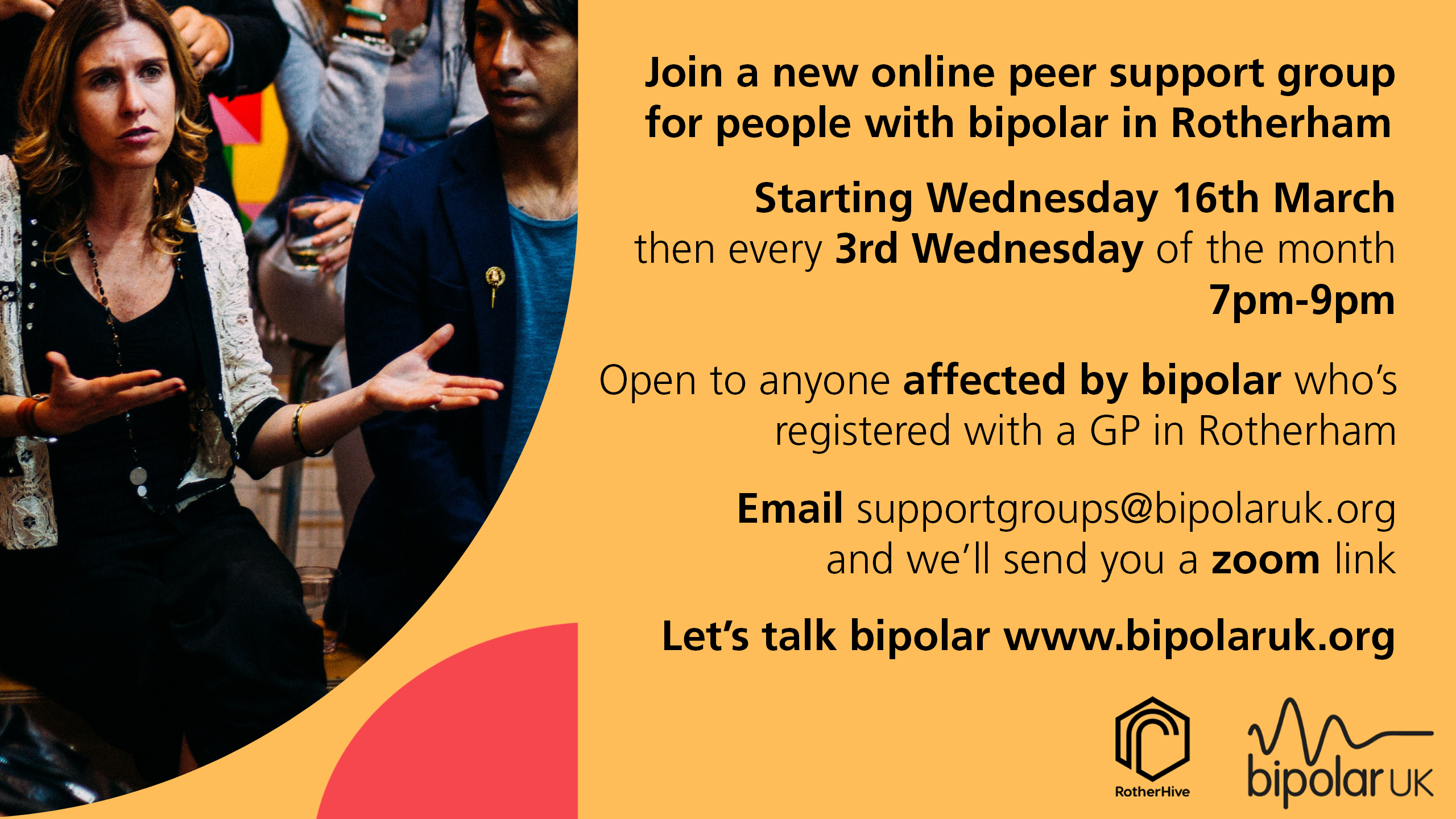Find free activities to help you get fit
Wellness Hive
The Wellness Hive has been created to support you and the people you care about.
Here you will find top-tips to help you take notice of your thoughts, feelings and the world around you and, ultimately, to feel good about your self.
First off, why not take the wellbeing quiz to help you explore how you’re feeling?
The quiz is designed to help you explore how you’re feeling and to give you some tips on how to feel better or stay happy.
Take a few minutes to think about each question and try to answer honestly. The questions cover mood, outlook on life, relationships and more.
Five ways to wellbeing
A great place to start with taking care of your mental health is the five ways to wellbeing.
The steps are easy to incorporate into your everyday life and could help you feel more positive and able to get the most out of life.
Be more active
Being active is great for your physical health, fitness and your mental wellbeing by raising your self-esteem, helping you to set goals or challenges and achieve them whilst causing chemical changes in your brain which can help to positively change your mood.
Connect with those around you
Good relationships are important for your mental wellbeing. They can help you to build a sense of belonging and self-worth give you an opportunity to share positive experiences provide emotional support and allow you to support others.
Give to others
Even small acts of giving and kindness can help improve your mental wellbeing by creating positive feelings and a sense of reward, giving you a feeling of purpose and self-worth and helping you connect with other people. It could be a small act of opening a door for someone, saying thank you to someone, spending time with friends and family or larger ones like volunteering in your local community.
Learn something new
Learning new skills can improve your mental wellbeing by boosting self-confidence and raising self-esteem – helping you to build a sense of purpose and helping you to connect with others. Even if you feel like you do not have enough time, or you may not need to learn new things, there are lots of different ways to bring learning into your life.
Pay attention to the present moment (mindfulness)
Paying more attention to the present moment can improve your mental wellbeing. This includes your thoughts and feelings, your body and the world around you. Some people call this awareness ‘mindfulness’.
Mindfulness can help you enjoy life more and understand yourself better. It can positively change the way you feel about life and how you approach challenges.
Work with everything you have, and everything you feel rather than looking at anyone else and what they have and how they feel. You can make for a better moment in the future by dealing with the moment that is in front of you now. Your future self will thank you for it.
The Great Big Rotherham To-Do List
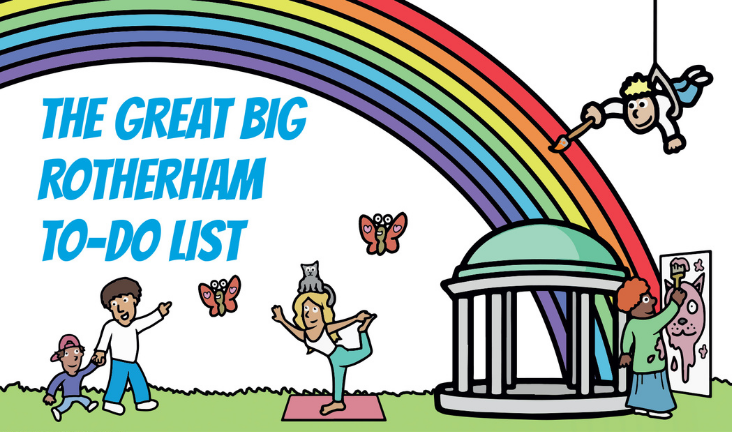
An illustrated record of simple pleasures – things that are right on the doorstep and cost us no more than our time.
Download
Download (accessible version)
Activity planner
Download a five ways to wellbeing activity planner. It helps you to plan activities for each of the five sections and to reflect on what you have enjoyed and how you feel as a result of the activities.
Tips to cope with specific problems you may be having
I don’t want to worry
Understand why you feel worried
Keeping a record of what you are doing and how you feel at different times will help you to see what is making you feel this way and shows you what you need to take action on.
Challenge your unhelpful thoughts
Challenging unhelpful thoughts is one of the best things we can do to feel less worried – ask yourself ‘Why am I worrying about this now?’
Set aside time for worries
If your worry feels like it takes over your day, setting aside “worry time” to go through your concerns each day can help you to focus on other things.
Shift your mindset
Some people find relaxation, mindfulness or breathing exercises really helpful. They can help you to switch your mind to the present moment which reduces tension.
Facing the things you want to avoid
It’s very easy to avoid doing things we don’t want to do or think about by relying on our trusted habits that make us feel safer, but these can keep your worries going. By taking your time in worrying situations, your anxious feelings will gradually reduce and you will see these situations are OK and you can face the things you want to avoid.
Turning problems into solutions
Get to grips with the problem – when you’re feeling stressed or worried, it can help to use a problem-solving technique to find some solutions. This can help you get to grips with managing the problem you are facing.
Explore RotherHive
Find support and information on a wide range of problems that may be affecting your health and wellbeing, from debt to domestic abuse, alcohol to bereavement.
I want to improve my mood
Increase the activities that help improve your mood
When we feel low it can stop us doing important or enjoyable activities. Create a list of helpful activities and try doing some each day. Start with easier ones and, as you progress, your mood should improve.
Challenge your unhelpful thoughts
Challenging unhelpful thoughts is one of the best things we can do – the way we think affects the way we feel.
Talk to someone
Friends, family and colleagues, or contacting a helpline, can help us when we are struggling and you can benefit from talking things through.
Improve your sleep
Low moods can make us feel very tired. Tiredness can also have a negative impact on our mood.
Be kind to you
Try not to do everything at once, try breaking down big tasks in to smaller manageable chunks. You will feel more motivated by completing each bit – remember to say to yourself ‘Wow, I’ve done that!’ and before you start your next task tell yourself ‘I can do this!’.
Healthy living
Being active, cutting back on alcohol and making sure we have a healthy balanced diet can help boost your mood, and help improve wellbeing.
Explore RotherHive
Find support and information on a wide range of problems that may be affecting your health and wellbeing, from debt to domestic abuse, alcohol to bereavement.
I want to feel less stressed
Break down your tasks
Try not to do everything at once, try breaking down big tasks in to smaller manageable chunks. You will feel more motivated by completing each bit – remember to say to yourself ’Wow, I’ve done that!’ and before you start your next task tell yourself ‘I can do this!’
Give yourself time for positive thinking
Take time each day to think and reflect upon the good things in your life. Think about what has gone well today and what you are thankful for.
Challenge your unhelpful thoughts
Challenging unhelpful thoughts is one of the best things we can do to feel less worried – ask yourself ‘why am I worrying about this now?’ The way we think affects the way we feel.
Get active
Being more active can help you to burn off nervous energy. It will not make your stress go away, but it can make it less intense.
Talk to someone
Friends, family and colleagues, or contacting a helpline, can help us when we are struggling and you can benefit from talking things through.
Plan ahead
Get yourself ready for any upcoming stressful days or events – write a plan or a to-do list, this might include the journey you need to do, things you need to take, etc. Making a plan can really help to reduce stress.
Explore RotherHive
Find support and information on a wide range of problems that may be affecting your health and wellbeing, from debt to domestic abuse, alcohol to bereavement.
I want to sleep better
Stick to regular sleep hours
Going to bed when you start to feel tired and getting up at approximately the same time each day helps teach your body to sleep better. Try to avoid taking a nap at other times where possible.
Challenge your sleeplessness
If you are lying awake and unable to get to sleep, do not force it as this will make you frustrated. Instead, get up and do something to help you relax for a bit, and go back to bed when you feel more tired.
Create a peaceful and restful space
When your sleeping space is dark, quiet, comfortable and cool it will generally make it easier to fall asleep and stay asleep.
Worrying when you should be sleeping
If you often find yourself lying wide awake in bed worrying about tomorrow, you’re yourself some time before bed to make a list for the next day. This can help put your mind at rest.
Move more, sleep better
Being active throughout the day can help you sleep better at bedtime. Remember to avoid vigorous activity near bedtime if it affects your sleep.
Cutting down the pick-me-ups
Caffeine and alcohol can stop you falling asleep and prevent deep sleep. Try to cut down on alcohol and avoid caffeine close to bedtime.
Explore RotherHive
Find support and information on a wide range of problems that may be affecting your health and wellbeing, from debt to domestic abuse, alcohol to bereavement.
NHS Sleep Station
Sleep station is an approved NHS service, available on the NHS. If you’ve had a sleep problem for more than a month, you should tackle it now because sleep problems get worse the longer we leave them. Sleepstation can cure insomnia without medication and NHS patients don’t usually need to visit their GP to get a referral.
EveryMind Matters
Simple tips for better sleep from Every Mind Matters
Someone I know needs help
Tell them you are worried about them and say you want to help
Telling someone you know that you’re worried about them is a good way to start a conversation – it shows you care about the person, have time for them and that they do not have to avoid things when they talk to you.
Let them know you are there for them
The first time someone talks about their worries is a huge step. It’s good to recognise this and reassure them. Let them know you’re there to listen when they need to talk. Listening is an important skill. Ask open questions that start with ‘how’, ‘what’, ‘where’ or ‘when’. This can help people open up and share their worries.
Act as you always have done together
Do what you would normally do together – if you behave differently, it can make someone feel more isolated. Do not be afraid to offer kind words and a space to talk, whether by phone, messaging, social media or in person – just knowing you are there and can be contacted will help.
Patience is key
You will not always know the full story. There may be many reasons why they have found it difficult to ask for help in the first place. Just being there can be helpful for someone who may want to talk more later – just knowing you are there will provide comfort.
If they do not want to get support
Together, gently explore their reasons for not wanting to get support. If they are unsure or worried about getting help, just talking and listening without judgement could help work out what’s getting in the way.
Don’t force the conversation
Do not force someone to talk to you or get help, and do not go to a professional on their behalf. This may lead to them feeling uncomfortable, with less power and less able to speak for themselves.
Look after yourself
It can be upsetting to hear someone you care about not being in a good place. Be kind to yourself and take some time to relax or do something you enjoy.
Offer practical help
Little acts of kindness – like offering to do the shopping or to go to professional appointments with them – can help. Find out what works for them.
Explore RotherHive
Find support and information on a wide range of problems that may be affecting your health and wellbeing, from debt to domestic abuse, alcohol to bereavement.
Me and my medication
Antidepressant Review Clinic
If you have been prescribed antidepressants for depression for two years or more, you can self-refer to the Antidepressant Review Clinic. It will help you to make the choice about your medication that best suits you, including the option to reduce or come-off your antidepressant in a planned and supported way.
I want to be the best version of me
Firstly, recognise that the best version of yourself should be your vision, not anybody else’s. Don’t waste energy trying to live up to what somebody else wants you to be. Life is a very different journey for each and everyone of us.
Priorities for the day
Every morning, make a list of the three most important things you have to do for the day that will give you the biggest impact. This helps to cut out the noise of everyday life and forces you to look at your priorities and goals. For example, these could be exercise, a meeting at work and cooking a different, healthy family meal.
Use the 10 years test
When you come up against difficult situations, often it will seem like a you have a mountain to climb or feel like it’s a total disaster. Instead of panicking take a minute to stop and ask yourself, will this matter in 10 days? 10 months? 10 years? Chances are it won’t. Try not to think about the small mistakes we all can make and keep your eye on the big picture of being the best version of you.
Learn one new thing a day
This could be cooking a new recipe, learning some new words or a new skill. Push yourself to grow every single day. Keep a record of what you have learnt. Small, manageable and easily achievable every day, but just imagine how big the impact will be in a year!
Read, watch or discuss something new every week
We all have different ways of learning, through reading, visuals or discussion.
Batch your emails
It’s too easy to get distracted as emails land in your inbox throughout the day. Instead of checking each one as it comes in, batch it and check the batch every 3 hours if you can. It’s very easy to see all emails as being urgent as most require a response, if something truly is urgent someone will call or message you.
Exercise in the morning
It’s so simple but it’s so effective. Your energy will be much better for the rest of the day and your health will be better for it. Set some goals, it might be to run a marathon and you have no experience – remember, the biggest step, is the first step of lacing up your trainers and starting your first run.
Be positive
Every morning (or night), write down three things that you’re grateful for that day. It will make you feel much happier. Anytime you’re feeling down or stuck, just have a re-read to give you the positivity you need.
Build a ‘feel good’ group
Spend time with friends and family that lift you up and inspire you to live the best life possible. Have someone negative in your life? Don’t spend time with them as they will make your mood and self-esteem low – which will also mean you are throwing buckets of negative energy out into the world too. Try to be around people that bring out the best in you and help you shine.
Think about experimenting
A lot of times we don’t know what the right answer is. What’s the best way to find out? Experiment. Test your ideas and have the courage to take actions to find out what will work – it’s ok to not get it right first time, that’s how we learn from our mistakes and remember, it’s only the fear of failing that holds us back.
Don’t be afraid to ask for help
We all need a little help from other people from time to time. Don’t let your pride get in the way of being the best version of you.
Physical Wellbeing
Good physical health and good mental health are intrinsically linked – where one suffers, the other will usually follow.
So, looking after our physical wellbeing should be a top priority for us all.
Physical activity plays a huge role in enhancing our psychological wellbeing and mental health.
Being present and mindful
Mindfulness is the foundation of self-compassion and has the potential to help people become aware of their difficulties, bring compassion to their lives with greater wisdom and the ability to respond with kindness.
Healthy eating
Eating a balanced diet is a fundamental part of maintaining good health and supports us with feeling at our best.
Resilience
Resilience can be described as the process of adapting and recovering well from adversity, trauma, tragedy or threats.
Self compassion and kindness
Self-compassion is about treating ourselves with the same kindness, care and attention that we would give a good friend when life gets tough.
Personal Growth
We can all find ourselves placed in situations and environments that can be stressful, difficult and challenging. This can create a range of different responses in individuals according to their values.
Explore RotherHive
Find support and information on a wide range of problems that may be affecting your health and wellbeing, from debt to domestic abuse, alcohol to bereavement.
Rotherham Get healthy
The smallest of changes to your lifestyle can make a real difference to your health, and Get Healthy Rotherham is here to help support you in making those changes.
Online and Community groups
We all know how important it is to look after our mental and physical health but it can be hard to find the time and motivation to do it.
There are lots of online groups you can join that offer a safe place to share your experiences, professional support and advice when you need it and where you can listen to other people’s ideas and experiences.
Browse the links below to find the group for you…
Every Mind Matters
Every Mind Matters – take the Your Mind Plan quiz to get top tips and advice for you, plus lots of information, advice, support and videos to help you look after your mental health and wellbeing.
Get Healthy Rotherham
Get Healthy Rotherham gives you support with reducing alcohol, healthy eating, getting active and stopping smoking. Create an online account that you can access via smartphone/device.
Kooth
Kooth is a free, safe and anonymous online mental wellbeing community for people aged 11-25. Whether you are looking for advice or simply not feeling your best, Kooth offers a range of features and support tools.
Qwell
Qwell is a free, safe and anonymous online mental health support service for adults, available 24/7. Whether you are looking for advice or simply not feeling your best, Qwell offers a range of features and support tools (for ages 18+).
Side by Side – from Mind, the mental health charity
Side by Side is a supportive online community where you can feel at home talking about your mental health and connect with others who understand what you are going through.
Rotherham Gismo
Gismo is an online directory of not-for-profit groups providing help and support to people living and working in Rotherham.

